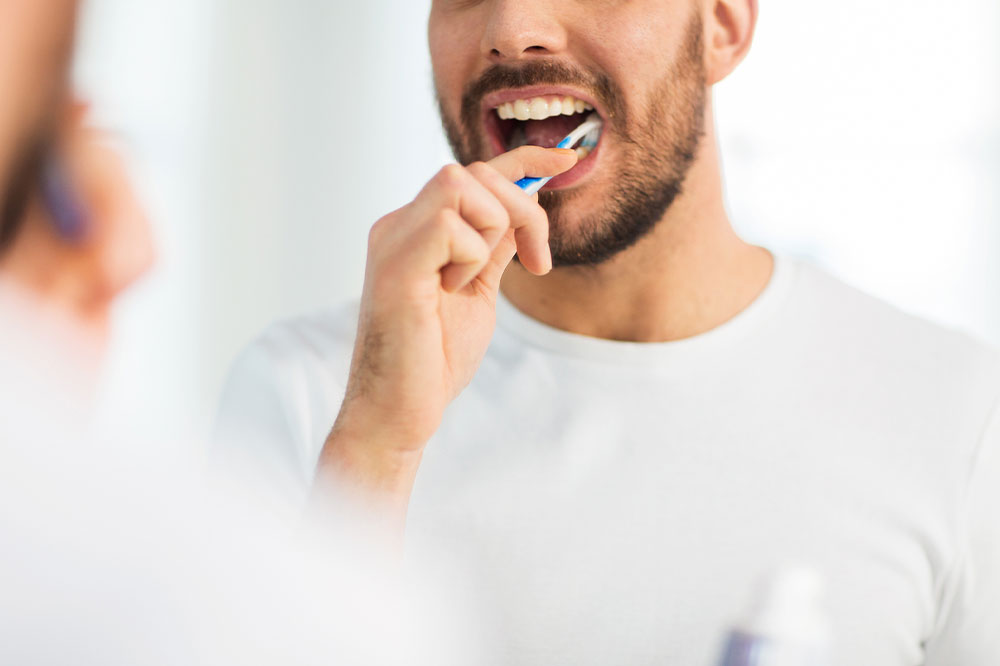Top 10 bad bathroom habits to avoid

You go to the washroom several times a day, be it for just relieving yourself or taking a shower. It’s a habit that subconsciously forms so often that you neglect to pay attention to what you do inside while using the facilities. Even something as simple as not properly washing your hands increases the risk of health complications. And this is just one example of the many bad bathroom habits that affect overall health.
Here are ten such instances to change for good.
Skipping washing your hands
Washing your hands is one of the most basic etiquette rules after going to the bathroom. Know that the door handles and toilet surfaces get covered with invisible bacteria and germs with repeated use of the facilities. Touching anything inside the washroom transfers millions of these bacteria onto the hands. And not properly washing your hands causes these microbes to transfer onto other surfaces, thus spreading the infection. Therefore, it is necessary to use liquid soap to cleanse thoroughly before exiting.
Using dirty linen
It is also important to practice good linen hygiene. Hand towels, face napkins, and even bath towels should be washed and replaced regularly, as these daily-use linens collect debris from the skin. Also, keeping linens moist after use allows bacteria to thrive in a damp environment. Using the same towels the next day transfers all the dirt and gunk back onto the skin, increasing the risk of skin allergies and infections.
Using the phone in the bathroom
Staying distracted while trying to relieve yourself is a bad idea because this will only extend the natural activity. Scrolling endlessly through videos, shorts, reels, and other social media posts in the bathroom will force a habit that makes it difficult to go without the phone the next time. Using your phone also adds more time to the task, increasing the risk of complications. Also, there is the risk of dropping your phone into the bowl! So avoid carrying anything inside.
Sitting for too long
Sitting for prolonged periods on the toilet seat puts pressure on the pelvis and hips. If you cannot relieve yourself in one go, it’s best to take a break and try again later. Sitting for too long in an uncomfortable position also restricts blood flow to the legs, resulting in numbness and tingling sensations. Also, frequent straining can cause hemorrhoids due to the pressure on the rectum.
Sharing cleansing products
Soap is a self-cleansing product, but sharing soaps, shampoos, body washes, lotions, and other toiletries with anyone in the house is never a good idea. Even after thoroughly rinsing off these topical applications, there is a good chance that some bacteria, dead skin cells, and infection-causing germs survive on the product’s surface. Sharing soap allows the germs to be transferred to the next person who showers. The same applies to personal hygiene items like razors, toothbrushes, and tongue cleaners. Sharing these items increases the risk of hepatitis, strep infections, and staph infections among the house members.
Flushing improperly
You might be wondering what is wrong with the way you flush. You probably have yet to notice this habit, but most people flush with the toilet seat open. Flushing forces the bacteria and viruses off the toilet bowl, thus releasing them into the air. Always flush the lid down to prevent this exact thing from happening. It’s also advisable to use a strong detergent pod that can be immersed in the flush tank to improve the flushing action and disinfect the toilet bowl at the same time. But do everything with the lid closed all the way.
Skipping regular bathroom clean-ups
The bathroom tiles and surfaces are breeding grounds for millions of bacteria and germs that spread quickly. Even after you’ve washed your hands thoroughly, merely touching these surfaces allows bacteria to transfer and trigger an infection. Therefore, taking time out to scrub and disinfect these surfaces with a commercial cleaning product is necessary. Scrub the sinks, curtain showers, countertops, cabinets, and toilet bowl thoroughly. Keeping the bathroom clean prevents the transmission of germs that cause infections like E. coli and salmonella.
Showering with hot water
Hot water has several benefits. A hot shower helps open the skin’s pores and relieve sore muscles. However, you should avoid hot water in certain areas, including the genitals, hair, and face. These areas are susceptible and can blister easily if the water temperature is too much to handle. These open wounds also take a longer time to heal. If you must take a hot shower, ensure both the hot and cold taps run simultaneously and adjust the temperature accordingly.
Failing to dry yourself properly
Vigorously patting yourself dry will trigger excessive shedding of healthy skin cells on the surface. Skincare experts suggest drying it out by patting the skin lightly and not scrubbing it off rigorously with a good-quality towel. Follow the same practice for drying your hair so you don’t put excess pressure on the follicles. Avoid using an air dryer for the body or hair, as moist air provides a better breeding ground for bacteria. Follow these simple habits to prevent hair loss and skin care problems from worsening.
Forgetting to brush twice a day
One of the most common unhealthy habits that affect oral health is not brushing your teeth regularly. Dentists, in fact, suggest brushing after every meal. But even if that is not possible or practical, you should at least brush regularly twice a day, once in the morning and once at night. Brushing in the morning removes the bacteria and germs harbored in the mouth overnight. Brushing at night prevents the same bacteria from causing cavities by feeding off food stuck in the crevices of healthy teeth.


